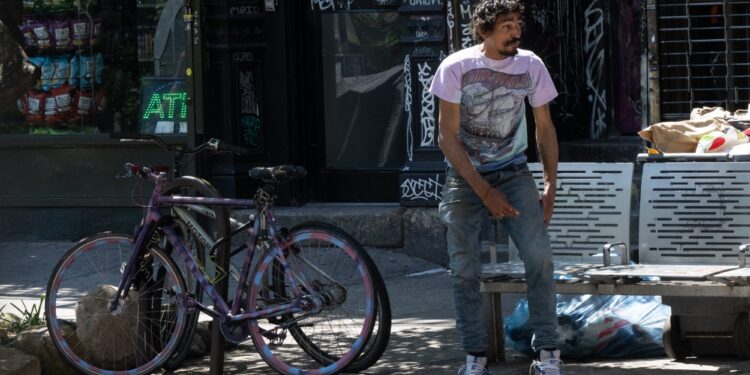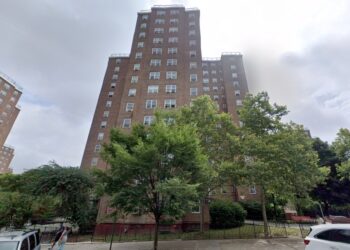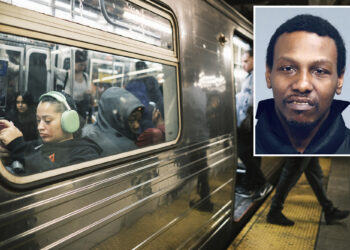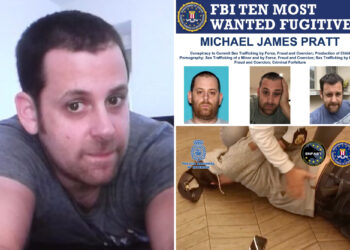
“The system is just broken,” said retired NYPD detective and John Jay College adjunct professor Michael Alcazar. “If he’s violent and emotionally disturbed . . . they should just keep him in the hospital. Somebody is dropping the ball.”
Alcazar was speaking of Nicholas Babilonia Jr., a violent, mentally ill man with the charming nom de guerre of Ice Pick Nick.
Ice Pick has 37 arrests and likes to roam around the East Village assaulting people. He threatens to kill people, chases residents and waves around his weapon of choice. As Sunday’s Post explained, the NYPD is well aware of Ice Pick’s issues.
They pick him up and stick him in Bellevue, where he’s treated for mental-health issues.
He’s let go in days, maybe just hours, and is right back on the streets.
A similar case is Shaquan Cummings, another mentally ill man, who on Friday in Harlem stabbed an 11-year-old in the head.
And in Times Square on Saturday, Cyril Destin is suspected of being the man who stood up from his walker, pulled out a knife and stabbed a random tourist.
Like Ice Pick, these two are no strangers to the justice system. Cummings has around 20 arrests. Destin,
The police know who these menaces are.
They are a small number of mentally ill vagrants who terrorize neighborhoods and transit hubs, ticking time bombs who are picked up and let go for low-level harassment, spewing profanity or spitting on a passerby.
That is, until they push someone in front of a train. After which, a person is dead, and they are in prison for life.
That’s certainly where Ice Pick is headed, says East Village resident Garrett Rosso. “If he doesn’t get that help, he’s either going to kill someone, or going to kill himself.”
“Defunders” say the mentally ill need assistance, not police intervention, yet they stand in the way of that actually happening. Homeless advocates have pushed court case after court case to prevent involuntary institutionalization and medication. They want sleeping on the streets to be legal and to enable narcotics usage with injection sites.
“Although preserving the rights of people with severe mental illness to be treated in the least restrictive settings is noble, it has allowed many people . . . to be rehospitalized in what has been termed the ‘revolving door’ of acute hospital admissions,” notes Dr. Daniel Yohanna in the American Medical Association’s Journal of Ethics.
“The term ‘dying with one’s rights on’ was coined by Darold Treffert in 1973 to describe how the laws have gone too far in protecting the rights of individuals at the expense of their safety and well-being.”
Fifty years ago. That’s at least how long New York has been grappling with this issue.
Mayor Adams’ idea is to target 100 of the “hardest to reach” homeless, often mentally ill New Yorkers to get them off the street. In November, he claimed more than half had been brought to a shelter or put in a hospital bed.
Mayoral wake-up call
We want this to succeed, but Adams must bring new urgency to this initiative after last weekend’s incidents. Cummings and Destin weren’t reached before someone else got hurt.
Ice Pick Nick wasn’t either; he was arrested Thursday for threatening someone with a metal pipe.
Mr. Mayor, these three were also among the “hardest to reach.”
Let’s not take no for an answer anymore.
And for the liberal social justice and legal groups that would prevent the city from treating these men with a lawsuit or lobbying, think about what is the best possible outcome for us — and them.
We can’t say it better than Chris Ryan, an East Village resident quoted in Sunday’s Post about Ice Pick Nick: “Anyone who thinks they’re being empathetic or charitable by letting this guy rot out on the street, provoking the next violent encounter, has to examine their own perspectives.”



























